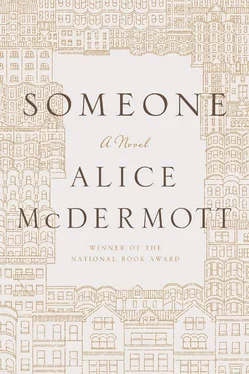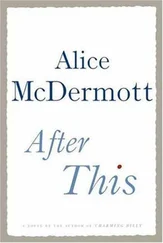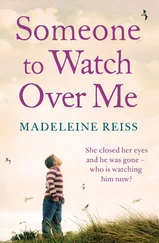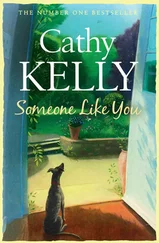(At our reception, Mr. Fagin and Mr. Heep had stood before me, arm in arm, laughing and pointing at each other, shouting about what they called the “irony of it,” that they both had names out of Charles Dickens. I thought it only a meaningless happenstance, but Tom, who had learned his catechism from former chorus girls, saw every such coincidence as God’s winking reminder that He was a regular Ziegfeld, orchestrating everything. Tom raised his glass to the two men and said, “Beers and biers,” which got everybody roaring.)
“You’ve got to have some pity for them,” Tom said. “People like that. It’s got to be a lonely life.”
And we drew closer together, in our new and unaccustomed intimacy, under the hotel sheets that smelled faintly of bleach and now of our own sleep-warmed bodies.
For one of us at least, we knew, we were certain—this is how we saw the world—there would never again be loneliness in life. For Tom, as it turned out.
He shifted in the bed and put his arm around my waist, put his face to the satin and lace of my lap. There was the sound of water running in another room, another door closing somewhere nearby, and short voices in the hall. The ordinary, rushing world going on, closing up over happiness as readily as it moved to heal sorrow.
I reminded him that we didn’t have much time, we had to get going if we were going to make it to Mass. His cheek against my bare arm was rough with the night’s stubble. The taste of champagne lingered on his breath. To hell with time, he said, and I marveled to discover that this was something we might also do in daylight.
The figure in the doorway was squarely built, broad-shouldered in his long white T-shirt and with a wide dark head, but not tall, and decidedly pitched to the right.
“Can’t you sleep, Marie?” he said.
“No,” I told him.
“Would you like some hot milk?” A smiling lilt to the words.
“No,” I said, resisting the charm of it.
I heard him sigh. Saw him tilt a little farther to his right, leaning, I supposed, against the door frame.
“Is there anything at all I can do for you?” he said. There was some golden light, hallway light, behind him. There was the lamplight from behind my chair that touched his white T-shirt. He had told me at some point that he’d found a cardboard box of them, size XXL, on the side of the Grand Central Parkway, and now he wore them every day to work, fresh and clean, a little too long, perhaps. He was not a tall man, but broad and strong, although somewhat misshapen. He had had scoliosis as a child. He had told me this, too. Like most of the workers here, caregivers they called themselves, he was from one of the Islands and spoke with a lilt that was often both beautiful and incomprehensible.
“I’m fine,” I said.
If you’re the caregiver, I sometimes said, am I the caretaker? But they didn’t understand the joke.
“Would you like to get back into bed?” he asked, and I lifted my hand. Sleep eluded me in the way so many things had begun to do: recollections, sounds, vision. I had grown weary of waiting for it. “No,” I said, “I’m better off in the chair.”
“I think you would be better off in the bed,” he said.
And I told him I had four children, six grandchildren, and each one of them did an excellent imitation of my mother. He should try another tactic.
I heard him laugh. He said, “But your mother couldn’t teach you to bake the bread.”
I said, “That’s true.” It surprised me to recall that I had told him the story. “I thought if I learned to cook, my mother would die. The way it happened to my friend. I was a stubborn child,” I added. “ ‘A bold piece’ is what my mother called me.”
With the way my eyes were, and the way the hallway light shone behind him, it was impossible to see his face, but I heard his laughter, which was meant to tell me I hadn’t changed. Two small children, who were not real, stood beside him, leaning against the hem of his oversized shirt. It was a trick my eyes had begun to play on me: figures appearing here and there, mostly in my peripheral vision: strangers, children in old-fashioned clothes, sometimes nuns in long habits or women with babies in their arms. A clean and lacy light all about them.
When I told my own children about this, they either nodded impatiently—well, if you’d had that transplant—or commiserated with false enthusiasm: maybe it means you’re regaining some vision. Even with my diminished eyesight, I knew they were exchanging “Let’s be tolerant” looks. Once, I asked them, impatiently—an impatient patient—“Why do you think every mystery is just a trick of the light?”
But my caregiver here in the doorway, in his oversized T-shirt, found in a cardboard box on an access road off the Grand Central Parkway—I knew all his stories just as he knew mine—called these illusions angels, the consoling angels that appeared to only the few, in their old age. He said I saw them because I had once saved someone’s life. Some Island superstition, I thought, or a tactic from the caregivers’ manual. But closer to what I wanted to believe, to tell the truth.
Still, I told him he was very much mistaken. I said I’d worked at Fagin’s funeral parlor until my first child came along. I was the consoling angel in those days, I said. I helped bury the dead. I didn’t save a one of them.
Now he asked me, his hands held to his sides as if to place them on the illusory children’s heads, “Will you call me when you’re ready to get into the bed? Will you do that at least, so I can help you?”
I said, “I will,” and the silence that followed told me he knew I lied. I saw the children move into the room.
“If you ask,” he said softly, “you know I will do it for you. You only have to ask.” And then he disappeared from what was left of my vision, because my eyes suddenly brimmed with foolish tears.
I suppose I stood then, because he caught me as I fell.
The doctor was red-faced. His hands were abrupt. “Mrs. Commeford,” he said, “you are not cooperating.”
Although I could not see it, I knew there must have been perspiration beaded on his forehead, because as he leaned to shout at me, a drop of it hit the sheet beneath my chin. I didn’t see it fall, but somehow I heard the sound it made, and in my pain I imagined that out of that sound, the sound of a raindrop on a dry roof, there rose more profoundly the scent of the hospital laundry, the scent of bleach on the sheet that nearly reminded me, too, of some experience in this life that I might have liked, might have loved, even—my first night with Tom, under sheets that had not been dried in the sun or on a line in my mother’s kitchen—but the pain was a swelling black tide that engulfed the brief, bright recollection in the same way it began to absorb the doctor’s red face and the hovering nurses in white and the light in the room—daylight or electric, who could say. I had been in labor for hours and hours by then, days perhaps.
I had not understood, I had not been told, the extent of the suffering involved, from the cramps of the enema to the scrape of the razor to the endless searing rise and the long aching fall of each contraction.
I had sent so many entreaties to heaven by then—first, that my baby would be healthy; then, that I would please not die; now, only that the pain might end—that I had begun to see myself as some kind of Fuller Brush salesman knocking on a solid door, a door without hinges, without knobs. Hours, days, could it be weeks, into this ordeal, I’d given up the hope of getting an answer, and so turned my pleas instead to my own father, who had loved me and would have wept to see me here, trussed up like a beast in a slaughterhouse, trapped under the weight of my belly, racked with pain, and now, among so many indignities, this man, this doctor, shouting angrily into my face.
Читать дальше












